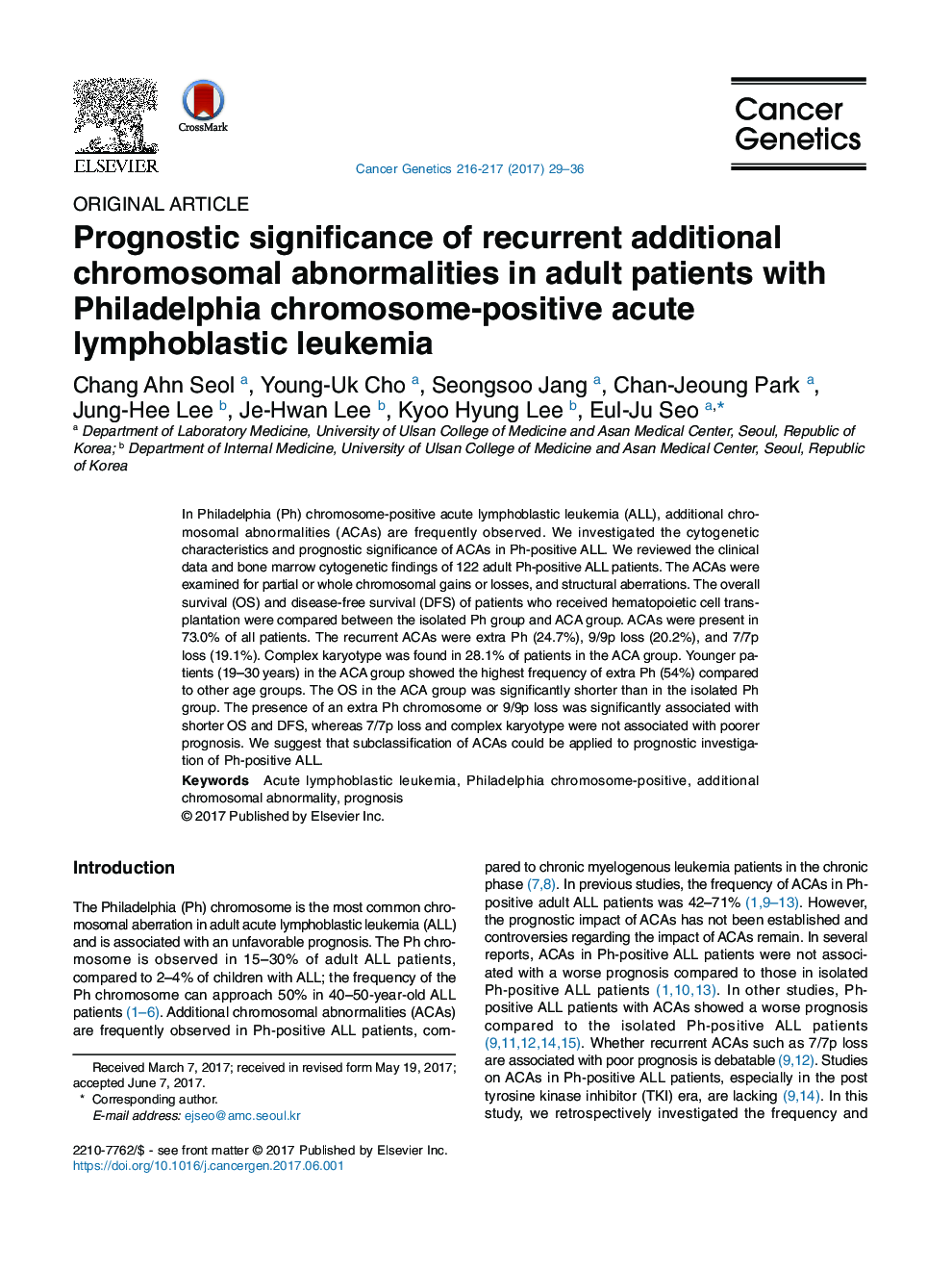| Article ID | Journal | Published Year | Pages | File Type |
|---|---|---|---|---|
| 5525025 | Cancer Genetics | 2017 | 8 Pages |
â¢Young patients (19-30 years) showed high frequency of extra Ph as additional chromosomal abnormalities.â¢Extra Ph and 9/9p loss were significantly associated with poor prognosis, whereas 7/7p loss and complex karyotype were not.
In Philadelphia (Ph) chromosome-positive acute lymphoblastic leukemia (ALL), additional chromosomal abnormalities (ACAs) are frequently observed. We investigated the cytogenetic characteristics and prognostic significance of ACAs in Ph-positive ALL. We reviewed the clinical data and bone marrow cytogenetic findings of 122 adult Ph-positive ALL patients. The ACAs were examined for partial or whole chromosomal gains or losses, and structural aberrations. The overall survival (OS) and disease-free survival (DFS) of patients who received hematopoietic cell transplantation were compared between the isolated Ph group and ACA group. ACAs were present in 73.0% of all patients. The recurrent ACAs were extra Ph (24.7%), 9/9p loss (20.2%), and 7/7p loss (19.1%). Complex karyotype was found in 28.1% of patients in the ACA group. Younger patients (19-30 years) in the ACA group showed the highest frequency of extra Ph (54%) compared to other age groups. The OS in the ACA group was significantly shorter than in the isolated Ph group. The presence of an extra Ph chromosome or 9/9p loss was significantly associated with shorter OS and DFS, whereas 7/7p loss and complex karyotype were not associated with poorer prognosis. We suggest that subclassification of ACAs could be applied to prognostic investigation of Ph-positive ALL.
